Gary Kemp on Spandau Ballet and Through The Barricades
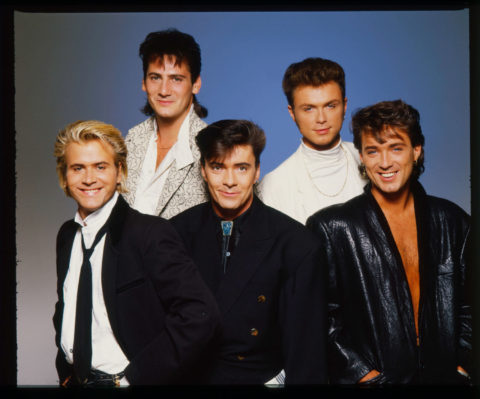
Sony’s Legacy Recordings reissue of Spandau Ballet‘s 1986 album Through The Barricades is released today. The double-disc set features a comprehensive remaster, bonus tracks, and a 50-minute documentary on the making of the album (and videos) on DVD. SDE caught up with songwriter Gary Kemp to discuss the reissue and also spoke to Gary Langan, who co-produced the album…
SuperDeluxeEdition: Did the record company initiate this reissue of ‘Through The Barricades’, or was it you?
Gary Kemp: To be honest, I wanted to get it out last year for the 30th anniversary, because we’d been doing that on the other packages, but we had a real problem with it because we recorded this on a particular digital machine, that was only in fashion for about a year, it seems. So the masters were all on this particular format (Mitsubishi X50). We couldn’t find this particular machine anywhere. There was one in Holland, and then by the time someone tested it, it was broken. In the end, we found one in New York but it really took a few months, and we missed the deadline that we wanted, to get the reissue out on the 30th anniversary.
Producer, Gary Langan: The multi-tracks would have probably been easy to track down, but the stereo was hard. But eventually we found one, I think it was Battery [Studios] in New York. We truly remastered it. We went back to the original stereo mixes and [at the time] they were mixed down onto this digital Mitsubishi machine, which looked like a normal stereo tape machine, but it wasn’t, it was digital. It was great at the time, you know, cutting edge technology, however it didn’t stick around. Anyway, so we found one in New York and thankfully the tapes were in good enough order and they were transferred in New York from digital tape to digital hard drive, something that we understand now – i.e. it was 192 kHz/24 bit. They sounded good. If we hadn’t found them, then there would have been safety copies done of the original mastering process, but those files would have had stuff done to them, what we wanted was the raw, original files, to start again. It wouldn’t have been the same, and it’s what goes on a lot of the time. It’s a little bit depressing, to be honest. That’s why there are some remasters that I don’t get involved with, because you are just taking the CD that I did 20 years ago…. but Gary wanted to go as far back as we could, basically, which was great, it really was.

Gary Kemp: Through The Barricades had never been reissued on vinyl so you can’t get that and as far as the CD/DVD set is concerned, I feel that this was the year that Spandau Ballet were really in their pomp. Regardless of the fact that True is still our biggest selling and most-played song, this was our biggest tour and when we were at our best, and I really wanted to capture that whole era as much as we could in terms of getting as many videos and films from the time, that hadn’t been used in the Soul Boys of the Western World film. We thought we’d exhausted our archive with that movie, but we hadn’t. We ended up going to a lot of home movie stuff that Steve Norman, our sax player, keeps dredging up from deep storage [laughs]. We found lots of great archive stuff, including us on the Through The Barricades tour, including the only time we did a cover version, in front of 100,000 people in a one-off show in Spain. We did All The Young Dudes and we found home footage of that. So we’ve made an hour-long film, which is a compilation of archive, going from the writing process in Ireland to the recording process in Germany and France, and into the tour. It’s intercut with a chat at Abbey Road between me, Steven Norman, John Keeble and Gary Langan – who produced it – sitting around and talking about the whole process. And there’s footage of Martin, also, talking and looking back at the process – he wasn’t available the day we shot our bit, so it’s nothing to do with the classic, Spandau Ballet members not talking to each other [laughs].

Gary Kemp: When we got those masters digitised, they weren’t in order, they were just individual songs, so we had to re-do the crossfades and the gaps between songs, so they matched up perfectly to the original. But without any doubt, this sounds so much better than the original CD release and better than the original vinyl. I think we got more ‘air’ into the vinyl, and certainly more bottom end. The vinyl is just the album, but the CD will have all the extra mixes we did during that period, including Cross The Line which was only released in Spain at the time.
SDE: That 12-inch mix is quite good, isn’t it?
Gary Kemp: It was really good. We did it in New York because Gary Langan was working with Billy Idol over there, so I flew to New York to do it with him. And Billy was there. Billy goes all the way back to us doing our first gig at the Blitz club in 1979. He was in the crowd and came up to me afterwards and said “you guys are the future of rock ’n’ roll” [laughs] which I thought was weird because I thought he was the future of rock ’n’ roll.
SDE: Weren’t there any demos that you could have included?
Gary Kemp: No we never found any demos. I never did demos. We would have gone to Ireland and we were set up in a theatre. The way I always used to write a song was I’d go into the rehearsal studio and play it to everybody and make certain suggestions about arrangements, and then we’d play it. Sometimes we’d record it. There were some recordings of those rehearsals that Gary Langan had, but he can’t find them. [Note: after this interview Gary did find a demo of Through The Barricades with his guide vocal on it. This was a late addition to the CD element of the reissue].
Producer, Gary Langan: Gary doesn’t work that way [creating band demos] because he can contain all his thoughts in his head. Some people want to write stuff down. With his demos you could think of him as a painter and artist who just needs to do the line sketch.
Gary Kemp: We’d rehearse it fully, and then we’d go in and we’d record the drums, we’d record the bass, we’d record the guitar…. all separately. And anything that wasn’t right, we’d record over. We were recording onto tape, so you wouldn’t keep everything in the way you might if you were recording onto computer, these days.
Producer, Gary Langan: The way records were made then had shifted away from ‘bands in the studio’ and there was this new found way of overdubbing and so you would deconstruct the band and put them on individually and reconstruct it. And that’s how a lot of the records were made in the ’80s. The only time they were together like that was when we were in Ireland [rehearsing].

SDE [to Gary Kemp]: Let’s look back at the record itself, which you must have listened to a lot as you went through the process of this reissue. Thirty years on, how do you rate the album, as a piece of work?
Gary Kemp: For me, I think it’s our best album, because we were playing so well on it. The songs are great, I’m really happy with the songs. We’d really reached a level of musicianship, I think, by this time we came to do Through The Barricades. We’d done a big tour, we toured for about 10 months with the Parade album, and you know, we were really a great live band. In the end we were a band who grew out of punk in the mid-seventies and we always played live. But what I was really moved by, when we listened to it, was the level of musicianship, arrangements and dynamics and structure within the tracks. There was never a dull moment. We learnt a big lesson, working Trevor Horn who told me as a songwriter that you always need five tricks in any song. And I listen to all the songs on this album, and I can hear the five tricks. You know, the five different things that happen within a song. You can’t have less than that, otherwise it gets boring. So I was impressed with it and songs like Swept, which never came out as a single but easily could have done, are really strong. And of course Through The Barricades works still to this day and is always getting played. But the band were much more of an arena band, by then. You know our first albums were about clubs, the True album was about playing in theatres…
SDE: Does that mean you approached this album in a way that would allow you to play it live easily on a big stage?
Gary Kemp: Yes. An album that was anthemic, that had a big sound and had a much more upfront guitar sound, that represented us as a live band and that would work in arenas. I think you do write songs for the venues you’re going to play. It didn’t sound dated to me, it sounded well recorded and very fresh. I think if anything, the eighties still a bit of a benchmark for the quality of recording, because post-eighties there was a desire to go a big ‘vintage’ on the sound – I’m talking about the Britpop scene, for example. And then after that it because completely sterilised with computers and now everyone sounds the same. What made the eighties suddenly sound so modern, was the invention of digital reverb, the desks that were being used and the ability to create a much wider musical landscape on tracks, and use the studio as a instrument in itself. And I think that all comes across on this album.
Producer, Gary Langan: When I talked to Gary about what he wanted to do, that was the thing that grabbed me. He wanted to do something different. People need to change and explore. The ultimate example of that is David Bowie. This was a time when Gary wanted to change direction and it was about doing the tour. There was this whole vision and it did need to be robust. And it was somewhere where I wanted to go. All that time [when I worked] with Trevor Horn was really amazing pop, but I now wanted to go and do something different.
SDE [to Gary Kemp]: You mentioned Gary Langan. Obviously, you’d worked with production team Jolley & Swain for quite a few years. Was bringing Gary onboard part of the move towards a new sound?
Gary Kemp: Yes it was. I suppose Gary was primarily an engineer, and we kind of knew how we wanted to producer ourselves. We didn’t need anybody on the arrangement side of things and Gary had worked with people like Billy Idol, the Art of Noise and we’d worked with him with Trevor Horn. He’d done that Beauty Stab album for ABC, which I though sounded great. Gary was a great, great engineer, but always would be able to control us in the studio as well, as far as being a co-producer was concerned.
SDE: So are you saying that you deliberately wanted to avoid some big-name producer that might try and put their ethos on to your record?
Gary Kemp: I think so… but we knew we wanted quality. And Gary, certainly at that time, was the best engineer in the world… and anyone who comes through the Trevor Horn school. He’d engineered all those classic records.
Producer, Gary Langan: We met during the first two albums and it was such a pleasure to be asked to work with Gary on Through The Barricades. They were so professional. It was a real breath of fresh air because Gary had really schooled the band, and when I turned up in Ireland there was a real smile on my face, because you’re not sure how good the ingredients are for the meal everybody’s about to eat. You know you’ve got the ingredients, but sometimes they’re past their sell-by date… But when I turned up in Ireland, they were rocking, they really were. They meant business.
SDE [To Gary Kemp]: Momentum is always quite important in pop music. There was around two and a half years between the release of ‘Parade’ and ‘Through The Barricades’ and in-between that you had changed record labels. How much did that impact what was going on with the band and did that build up the pressure in terms of what you were delivering next, music-wise?
Gary Kemp: We’d been on the road. This is going to sound pompous, but in those days British bands were successful everywhere, so we toured for a long time, around the world. So that added ten months, post-release to the album [Parade]. So you didn’t realise an album, do a small European tour and come back home and do another one, so there was a bit of a gap. We obviously had our dispute with Chrysalis, but that was okay, because I don’t write on the road, and I needed time to settle and write, and we settled in Ireland, in Dublin, a place we really liked and set up all the kit in a theatre there. And I had the responsibility of writing nine tracks, or something. Sometimes they come and sometimes they don’t. I felt I was slightly driving the boys mad at times when I’d say “I have a new song, we’re doing to do it” and then I might have three weeks of nothing coming out! We then went into recording and we took our time, we were the kind of band at that point that could take their time, get it right, do it residential and make it nice. While we were making the album, we’d come out of the dispute with Chrysalis and we were looking for other deals, with various other labels and we were flying people over to listen [to the music]. Fight For Ourselves was the first track we did and it became the calling card for the album, for all the deals we were trying to get for the album. We got ourselves off of Chrysalis because we weren’t happy… with the way they were dealing with our work. And we ended up with this big deal with Sony, who were happy to find it wasn’t just Fight For Ourselves on the album, there were a couple of other tracks that could do well, as well. I think we were entering an era, where it was more about ‘the album’ than about singles, so much, for us.

SDE: I suppose what I’m getting at is that you were knocking albums out, one a year, for the early part of the eighties, weren’t you, and then it wasn’t like today, where everyone knows what artists are doing… so apart from the tour element, you effectively ‘disappeared’ for 18 months or so and then came back with the album. So there’s always that danger that music fans might have moved on to a-ha, Pet Shop Boys, etc.
Gary Kemp: Yes, there was that danger and we knew that. We were coming back with a slightly different sound and it certainly wasn’t the same album as Parade. These things are a risk and you know, Fight For Ourselves wasn’t as high up the charts as Only When You Leave and Gold were, but it was still top 20 and doing okay, and we knew we had Through The Barricades under our belt…
SDE: Which was obviously a big hit…
Gary Kemp: It ended up being a bigger hit in Europe than any song we’d ever had and that tour was the biggest tour we’d ever done. We did six nights at Wembley Arena, which at that time was the house record. I think at that time we were seeing ourselves as a band that was becoming less of a blue-eyed soul band and more of a rock band, really. And that’s really what this album’s about.
Producer, Gary Langan: We had such a lovely time remastering the album. There were so many good memories that came back… and you know, tough moments. The hardest was doing Through The Barricades. Gary really wanted to nail the acoustic thing.
Fight For Ourselves took about a week or ten days to do. It always takes longer to do one song, than a bunch of songs. For the label it was a big investment, so they did want to see what Gary was talking about, which is why we did the single first. I guess we then spent about four to six weeks in Munch. Probably February through to March. And it was damn cold, it was a great time to be there, because obviously it was the snow season. They’re hard workers, they really are. But for R&R [rest and recuperation] we could go skiing at the weekend. I know that sounds a bit pop star-y but it was conducive to the album.

SDE [To Gary Kemp]: You debuted ‘Virgin’ from the album at Live Aid. Why did you decide to play a new song at, effectively, the biggest gig of your life?
Gary Kemp: Yes, we should have done what Queen had done and did a medley of our hits, because we had enough, but I think [manager] Steve Dagger will say that it was one of his very, very few mistakes in the history of his management career, when he suggested it. We thought Virgin was a really strong song – I don’t think we’d written Fight For Ourselves at that point, it was the first one I’d written – and we decided to debut a song and get some coverage out of it. And that was a real mistake, of course it was. Total mistake, I mean I can’t believe we did it! But luckily we did Only When You Leave and True. But we slightly spoiled our moment, by doing that, I think. Not to say that it’s a bad song, because I really love that song. We ended up redoing it on the comeback tour in 2009. There’s some Live Aid footage that Steve Norman took, on the DVD, actually.
SDE: So it doesn’t sound like you wrote 25 songs and then pared them down to nine…
Gary Kemp: I never do that. I’ve never done that in my life. If a song isn’t going right, I dump it and I don’t show it to the band.
SDE: On the broad subject of reissues, how much do you enjoy the process of looking back? A lot of artists only want to look forward.
Gary Kemp: No, I enjoy it, a bit like Jimmy Page enjoys it. It’s your legacy and there comes a time when you just want to polish it up and group things together and look back on something with a certain amount of objectivity. You know, these are classic milestones in rock history that we’re privileged to have played a part in… you know, people write new introductions to various classic novels all the time and each generation sees it slightly differently and that’s kind of what we’re doing with these reissues.

SDE: And having something physically, that people can buy, not just having something on streaming services…
Gary Kemp: Oh, I absolutely abhor streaming… but you know there’s an entire generation who have no other concept. I like vinyl but you know, I actually like to pay the money to go back and buy the first pressing, but that’s because I’m a bit geeky. And I don’t mind some scratches on something. I went through a terrible period of selling my records when punk happened, because punk became ‘ground zero’ and I wanted to get rid of everything I had before it. And also because I was skint. Cheapo Cheapo was the record store in Soho…
SDE: I remember that place…
Gary Kemp: I spent the rest of my life trying to get those records back!
SDE: I think a lot of people did that, didn’t they. Because the record companies were trying to tell everyone in the mid-to-late eighties to get rid of their vinyl, since CDs were the future. So there’s a certain irony, of course, now that they’re re-promoting vinyl.
Gary Kemp: We spoke to the record company about doing a vinyl/CD complete set and they were opposed to that. You know, they look at their budgets and what’s been successful in the past.
SDE: I think that’s the right approach because a lot of people don’t want vinyl foisted on them if they haven’t got a record player.
Gary Kemp: And when I buy vinyl I don’t want a CD foisted on me [laughs]. And I think the right home for the remixes was together on a CD, rather than making a load of vinyl… Sometimes you can spend money and make something beautiful like this new Pink Floyd set [The Early Years]. Nick Mason’s a good mate of mine and it’s all from his collection.
[Note: This interview, and therefore the next question, took place before the announcement about Tony Hadley leaving had been made]
SDE: What next for Spandau Ballet? Are we ever going to see another album full of new material?
Gary Kemp: Let me tell you we had three major labels offering us to do a new album last year, and I’ve got the songs. Tony is doing his solo project and wants to do a solo record and he just didn’t want to do it. It’s as simple as that. We worked together for 19 years and Tony’s mindset is that we’re still not together. We have to struggle to get all five of us to land in the same room and go on tour.
SDE: So all the touring and reunion stuff is done and dusted now?
Gary Kemp: Well we did a tour the year before last (2015). We went to America, Australia and Europe. There were loads of offers for last year to play big open air shows and really have fun doing it, but as I’ve just said in my previous answer, Tony didn’t want to do that. I don’t fully know all the reasons for that, but in the meantime I carry on keeping the brand’s name as healthy as I can, because the band is the best thing I’ve ever been part of, in my life. We did three songs two years ago with Trevor Horn, which I think were great.
SDE: When you worked with Trevor, was there ever an idea that this could be a new album, or was it only ever going to be two or three songs?
Gary Kemp: Well, no, because again, we weren’t in the same room. Tony was off, he’d booked his solo tour. We grabbed as much time as we possibly could. The record company originally said they’d pay for two new songs, but we immediately came up with more than that – about half a dozen – and they allowed us to do a third song, which we did. I would have done a new album, there and then, but the reasons are sometimes a bit more complicated. There’s still grudges from the past that no one can get over. Every band seems to be in those situations at one stage or another, but the fact that we can get all five of us on stage, and do a tour, is not bad.
Thanks to Gary Kemp and Gary Langan who were talking to Paul Sinclair for SuperDeluxeEdition. The ‘Through The Barricades’ reissue is out today.
Compare prices and pre-order

Spandau Ballet
Through The Barricades - CD+DVD deluxe

|
|
||||||||||||||||||||||||||||||||||||||||||||||||
Compare prices and pre-order

Spandau Ballet
Through The Barricades - black vinyl LP

|
|
||||||||||||||||||||||||||||||||||||
![]()
CD
- 1. Barricades (Introduction) (Remastered)
- 2. Cross the Line (Remastered)
- 3. Man in Chains (Remastered)
- 4. How Many Lies? (Remastered)
- 5. Virgin (Remastered)
- 6. Fight for Ourselves (Remastered)
- 7. Swept (Remastered)
- 8. Snakes and Lovers (Remastered)
- 9. Through the Barricades (Remastered)
Bonus tracks
- 10. Fight For Ourselves (Extended Remix)
- 11. Fight… The Heartache
- 12. Through The Barricades (Extended Version)
- 13. Cross The Line (Extended Version)
- 14. How Many Lies? (Instrumental)
- 15. Fight The Heartache (Alternate Version)
- 16. Through The Barricades (Original On Track Vocal Guide Demo)
DVD
- 1. Fight For Ourselves (Video)
- 2. Through The Barricades (Video)
- 3. How Many Lies (Video)
- 4. Through The Barricades Remastered: Revisited (Documentary)
Through The Barricades – vinyl LP
Side 1
- Barricades (Introduction) (Remastered)
- Cross the Line (Remastered)
- Man in Chains (Remastered)
- How Many Lies? (Remastered)
- Virgin (Remastered)
Side 2
- Fight for Ourselves (Remastered)
- Swept (Remastered)
- Snakes and Lovers (Remastered)
- Through the Barricades (Remastered)

 Interview
Interview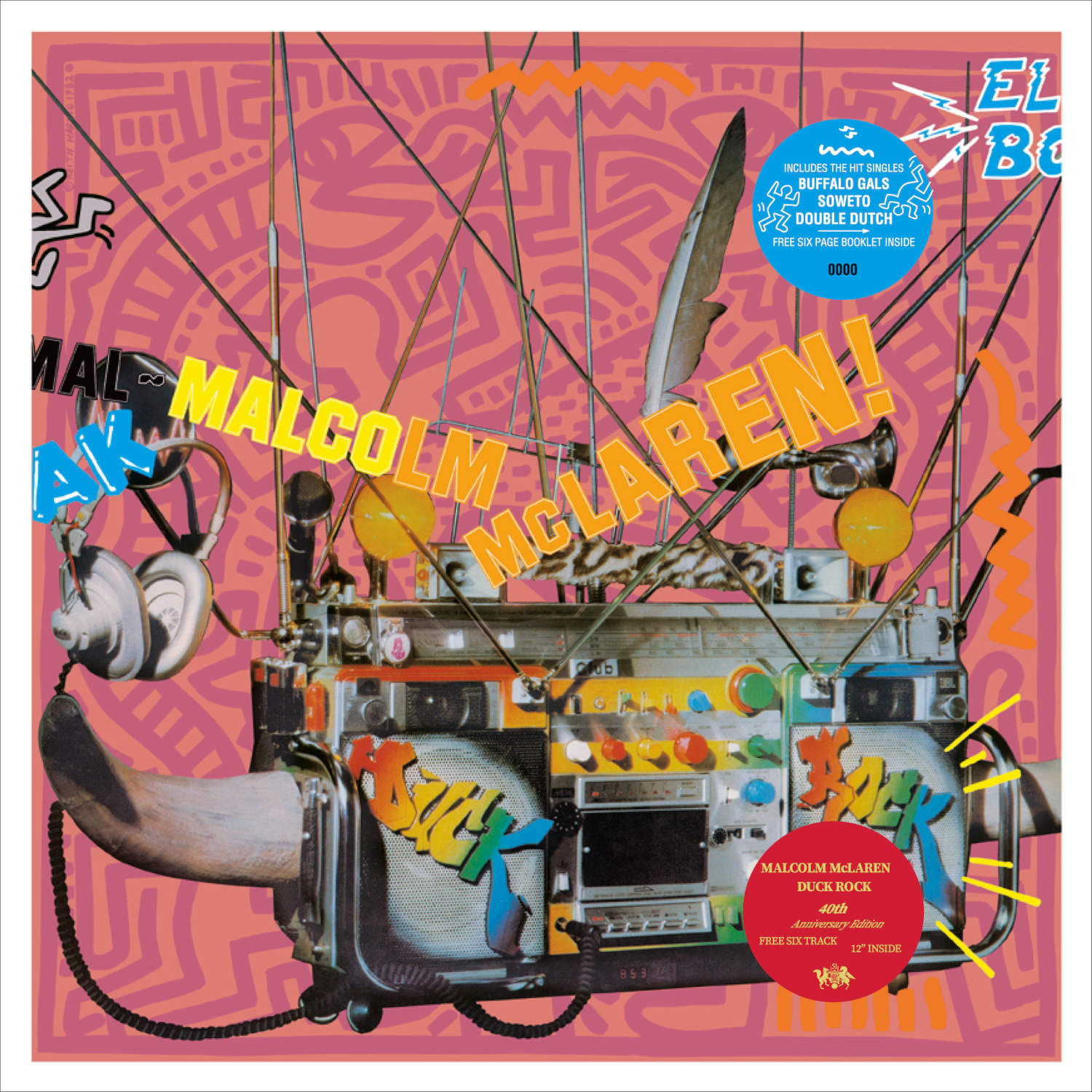
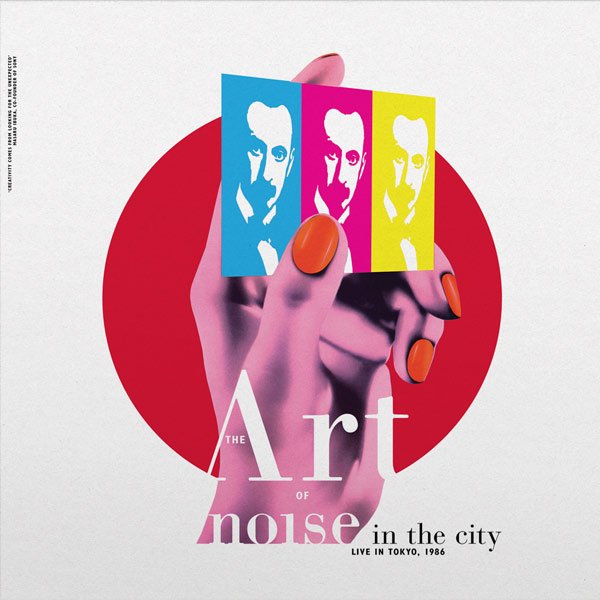
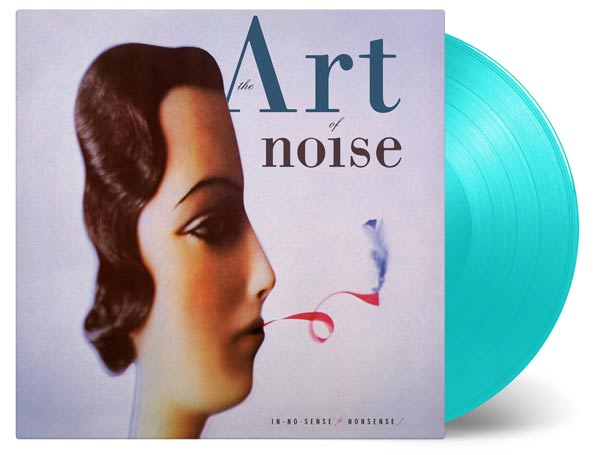
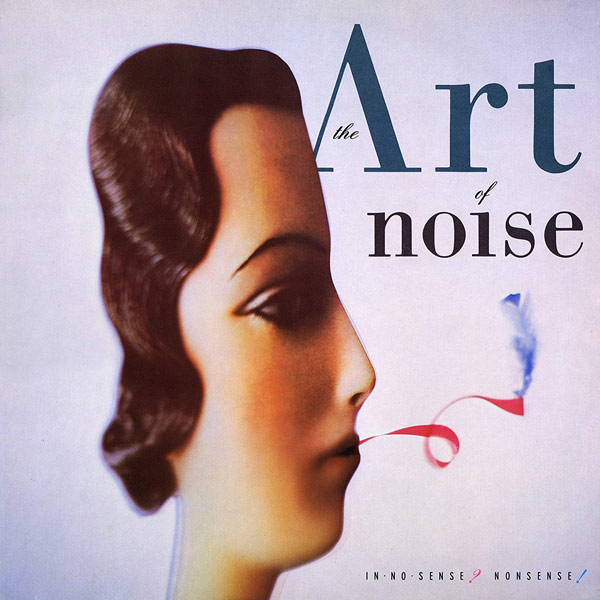
By Paul Sinclair
32